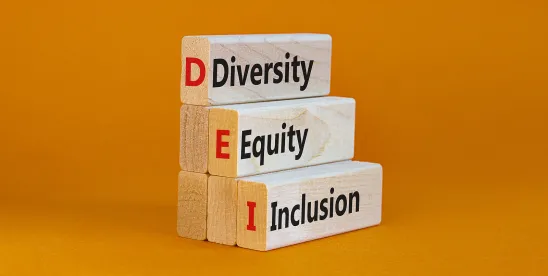Last summer, on June 29, 2023, the Supreme Court struck down affirmative action in college admissions in Students for Fair Admissions v. Harvard. Although the decision did not address diversity, equity and inclusion (“DEI”) initiatives outside of the higher education context, parallels were immediately drawn to corporate DEI programs. Over the past year, conservative activist groups have challenged a variety of corporate DEI initiatives, and although this has resulted in a mixed bag of success, companies should be thoughtful about their DEI approaches moving forward as the legal landscape remains murky.
The legal challenges have not been without success. In one ongoing case, American Alliance for Equal Rights v. Fearless Fund, the plaintiff conservative activist group recently achieved a favorable ruling at an important point in the proceedings. The Eleventh Circuit on June 3, 2024 issued a preliminary injunction in the case against the defendant venture capitalist firm, blocking it from issuing grants under a program that awards financing exclusively to Black women entrepreneurs.
In several other cases, litigation either remains pending or defendants have changed their DEI policies after being sued in an effort to avoid litigation altogether. In a high-profile example of the latter, law firm Morrison Foerster was sued in connection with a fellowship program that was limited to students from underrepresented populations. Morrison Foerster elected to amend its fellowship program by opening applications to any student that demonstrated commitment to diversity and inclusion. In the months that followed, several other law firms made similar changes to their fellowship programs after drawing attention from anti-DEI activist groups.
However, many courts have been reluctant to extend Students for Fair Admissions principles to the corporate context. In Do No Harm v. Pfizer, the Second Circuit on March 6, 2024 rejected the plaintiff’s claim that Pfizer’s fellowship program—which explicitly seeks to support students and young professionals of Black, Latino or Native American descent—is unlawfully discriminatory. Other notable companies have also prevailed against challenges to their DEI policies.
This leaves us in a murky legal landscape regarding corporate DEI practices, and we are seeing companies respond in very different ways. Some companies are taking the conservative approach of amending their DEI programs even before they are challenged in an effort to avoid drawing the attention of activist groups. Other companies are continuing to openly advertise their unchanged DEI programs. Yet others are sticking to their DEI initiatives but are disclosing the corresponding exposure to potential anti-DEI litigation as a risk factor in their SEC filings.
In light of this year’s developments, DEI initiatives that may place companies at a greater risk of facing challenges from activist groups include:
- Fellowship or grant programs that are limited to certain ethnic groups;
- Explicit policies to increase certain participation or membership of underrepresented groups; and
- Explicit policies to favor minority groups in investment decisions.
Unlike these higher-risk initiatives that specifically target one or more particular groups, programs that instead broadly promote inclusion or remove barriers to entry across the board in a non-discriminatory fashion are less likely to face challenges.





 />i
/>i

